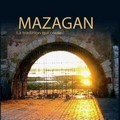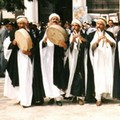The Moroccan authorities deplore the publishing by Human Rights Watch (HRW) of a document on a case that is still pending before the court, noting that it equates daring to discuss a matter under Morocco's judicial sovereignty.
The ministerial delegation for human rights said, Tuesday in a statement, that the Moroccan authorities took note of a document issued on Nov. 30, 2018, by HRW entitled 'Morocco: Torture Suspicions Mar Mass Trial Verdicts', six months after the verdicts given on June 26 by the Casablanca appeal court against people involved in the Al Hoceima events.
They noted that this document evaluates a trial that is still at the very beginning of its appeal phase, while ethics of trial observation requires waiting until the completion of the legal process.
The statement made by Middle East and North Africa communications and advocacy director at Human Rights Watch that «the appeals court needs to examine and discard any tainted confessions and ensure that no one is convicted except for real crimes» can only be considered as a blatant meddling in the process, knowing that this organization is continuously calling for the independence of the judiciary, said the statement.
The ministerial delegation for human rights insisted on the independence of the judiciary pursuant to article 107 of the constitution, which was given concrete substance in the organic law of the Higher Council of the Judiciary and the organic law of magistrates' statutes.
The Moroccan authorities also noted the selective aspect of the HRW's document which attended only 17 out of the 86 hearings and based its conclusions on documents by the press concerning allegations of mistreatment and on opinions by the defense of the defendants without including the defense of the plaintiffs.
The statement added that the said document includes false information, as the number of people who were pardoned which is 184 and not 116, noting that the case verdicts were based on proofs and not only confessions stated in judicial police's minutes.




 chargement...
chargement...












